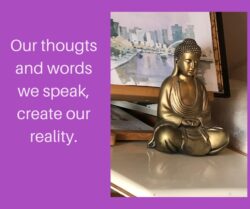

If you were a hypnotherapist, imagine what your working day would look like?
Do you think you’d be controlling your hypnotherapy clients mind?
Maybe you think you’d be swinging a watch to put someone in a trance?
Do you imagine you’d be making someone cluck like a chicken?
What would your hypnotherapy clients be like… a bit weird or alternative or even gullible?
A day in the life of a clinical hypnotherapist is nothing like the above.
It’s not mind control. It’s nothing like what you’ve seen on stage or at the movies.
Hypnotherapy clients I work with are very much like you and me. People who function well and are successful, but we need assistance in some areas of our life, such as anxiety or stress at work, public speaking, weight management or gambling.
People seeking hypnotherapy treatment are very intelligent and are usually not alternative or hippie or weird.
During our session hypnotherapy clients learn why they are the way they are. And why they are habitually behaving that way.
Then I will guide my hypnotherapy clients into hypnosis to help them tap into their mental resources.
Similarly, during our hypnosis sessions you will be safely guided to find more constructive ways to react to your problems and deal with emotional ups and downs.
Hypnosis trance feels like a very familiar experience for a majority of hypnotherapy clients.
You and I and majority of people, come in and out of hypnosis daily, but you don’t even realise you are doing it. While you are in hypnosis your attention is so focused (think of driving a car) that distractions are temporarily blocked out or ignored.
When you are hypnotised you are still aware of what’s being said to you. You are not asleep. When you are hypnotised you are relaxed and aware, yet more responsive to suggestions that are made.
Let me share with you my work day in my life as a hypnotherapist – Hi, I am Katherine Ferris, with 20+ years of experience as a clinical hypnotherapist in Macquarie Street, Sydney CBD and Annandale, Inner West.
In my work day as a hypnotherapist I see people who are suffering silently? Are you perhaps one of them, are you also silently struggling?
Do you feel alone, overwhelmed, anxious and vulnerable? If you are, you don’t have to do it alone…
Outwardly to appear calm and in control, but beneath the surface you’re in turmoil.
Very frequently you are stressed-out, juggling relationships, work demands, deadlines or habits and addictions.
During my day as a hypnotherapist I help many hypnotherapy clients with emotional issues. And similarly, I look forward to being of help to you. Get in touch today.
Many hypnotherapy clients have told me, they’ve tried to eliminate stress and worry, by being more mindful. They’ve tried mindfulness and positive affirmations. But a part of them still dwells on negative, anxious thoughts.
Since I’ve helped many hypnotherapy clients in the past, I am also going to give you a sneak peek into the day in my life of a clinical hypnotherapist. Let me tell you one of the reasons why it’s so hard to change negative thoughts “consciously”. It’s because the negative thoughts and emotional problems are imprinted in your subconscious-mind.
Sending positive thoughts and affirmations from your conscious-mind to your subconscious-mind is difficult. That’s because it needs to be done with strongly felt emotions.
Only thoughts with genuine emotions will make it through to the subconscious-mind. And those thoughts that are supported by a strong emotion will stay there.
Unfortunately, I’ve learned that fearful or negative thoughts and emotions are usually far stronger than the positive ones.
But nevertheless, relief from anxiety, emotional issues and habits is possible.
My experience as a hypnotherapist has taught me that we are capable of so much more that we give ourselves credit for.
Hypnotherapy is behind the reason why many people just like you and me, have become the best they can be.

When you choose to work with a clinical hypnotherapist, do your best to find one who is certified and also trained as a competent hypnotherapist.
It is one thing to have a skill as a stage hypnotist, and entirely another to know how to use hypnotherapy skills to help clients with stress or other issues affecting mental health.
Most importantly, clinical hypnotherapy helps you deal with all those uncomfortable feelings buried deep within you.
Feelings that you didn’t even know existed. The hurt and pain that causes mental anguish. Habits and Addictions are usually created to disassociate you from past traumatic experiences. It is a mental response to shield you from painful charged emotions.
Coping mechanisms protect you from past experiences where you felt mistreated or abused emotionally or physically. Although many negative coping skills are harmful, such as binge drinking to drown out those negative emotions.
Hypnotherapy sessions can be of help to you, to resolve emotional issues. Same as it helped many hypnotherapy clients, to overcome their issues and negative coping skills.

Hopefully, a sneak peak into the day in life of a hypnotherapist has given you better idea of the trance phenomena. There is no better time than today to put your life back on track!
Individual results will be different from one person to the next. Although, the effects of the positive suggestions remain with you, long after the session is done.
Now that you have had a sneak peek at the day in the life of a clinical hypnotherapist, feel free to get in touch.
Discuss your personal situation with me, I am Katherine Ferris a Registered Clinical Hypnotherapist, call me on 0414 585 595 or get in touch via the contact form.
Day in life of Hypnotherapist – has hopefully provided you with a small insight into hypnotherapy and trance phenomena. Let me know if you have any questions. I am looking forward to being of help to you.
You are not stuck. Your are just committed to certain habits and patterns of behaviour. Because it helped you in the past. Now the behaviour is more harmful than helpful. The reason you can’t move forward is because you keep applying the same old formula to a new level of your life. Change the formula to get a different result. ~ Emily Maroutian

CH, Dip. PSH, GSPP
Hypnotherapist – Sydney Wellbeing Centre
Mindfulness hypnotherapy services for emotional health and wellbeing. Hypnotherapy brings quick relief from stress, anxiety, panic attacks, habits and addictions, to stop smoking and gambling.
With 20+ years experience as a Registered Clinical Hypnotherapist I own and run the practice at Sydney Wellbeing Centre in Macquarie Street, Sydney and Booth Street, Annandale, Inner West Sydney.
Clinical Hypnotherapy Services helping you find relief from Trauma, PTSD, IBS, Insomnia, Anxiety and Panic Attacks.
Professional clinical hypnosis treatment to quickly quit addictions and habits such as; gambling, smoking, vaping, binge drinking, weight issues and sugar cravings.
Let me guide you with Hypnotherapy and hypnosis sessions to resolve turmoil, lack of self-confidence, insecurity, fear of public speaking, fear of driving, fear of heights, and fear of flying.
Visit Hypnotherapy Sydney Wellbeing Centre in the heart of Sydney CBD and Annandale, Inner West
© 2025 Created By Web Development Lebanon